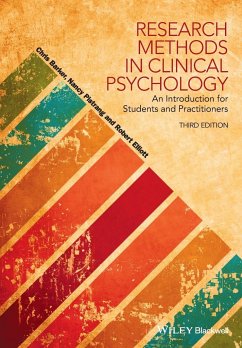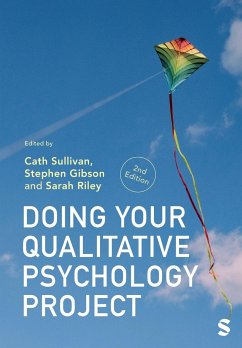
Your Undergraduate Psychology Project
A Student Guide
Versandkostenfrei!
Versandfertig in 2-4 Wochen
75,99 €
inkl. MwSt.

PAYBACK Punkte
38 °P sammeln!
Your Undergraduate Psychology Project: A Student Guide has been designed with the needs of the student in mind. Packed with hints and tips, and written in a simple, informal style, this 'second supervisor' is designed to ease students further into the world of research.
The second edition has been completely revised and updated with new material on focus groups and ethics and a new section entitled How to Lose Marks Instantly.
The second edition has been completely revised and updated with new material on focus groups and ethics and a new section entitled How to Lose Marks Instantly.














